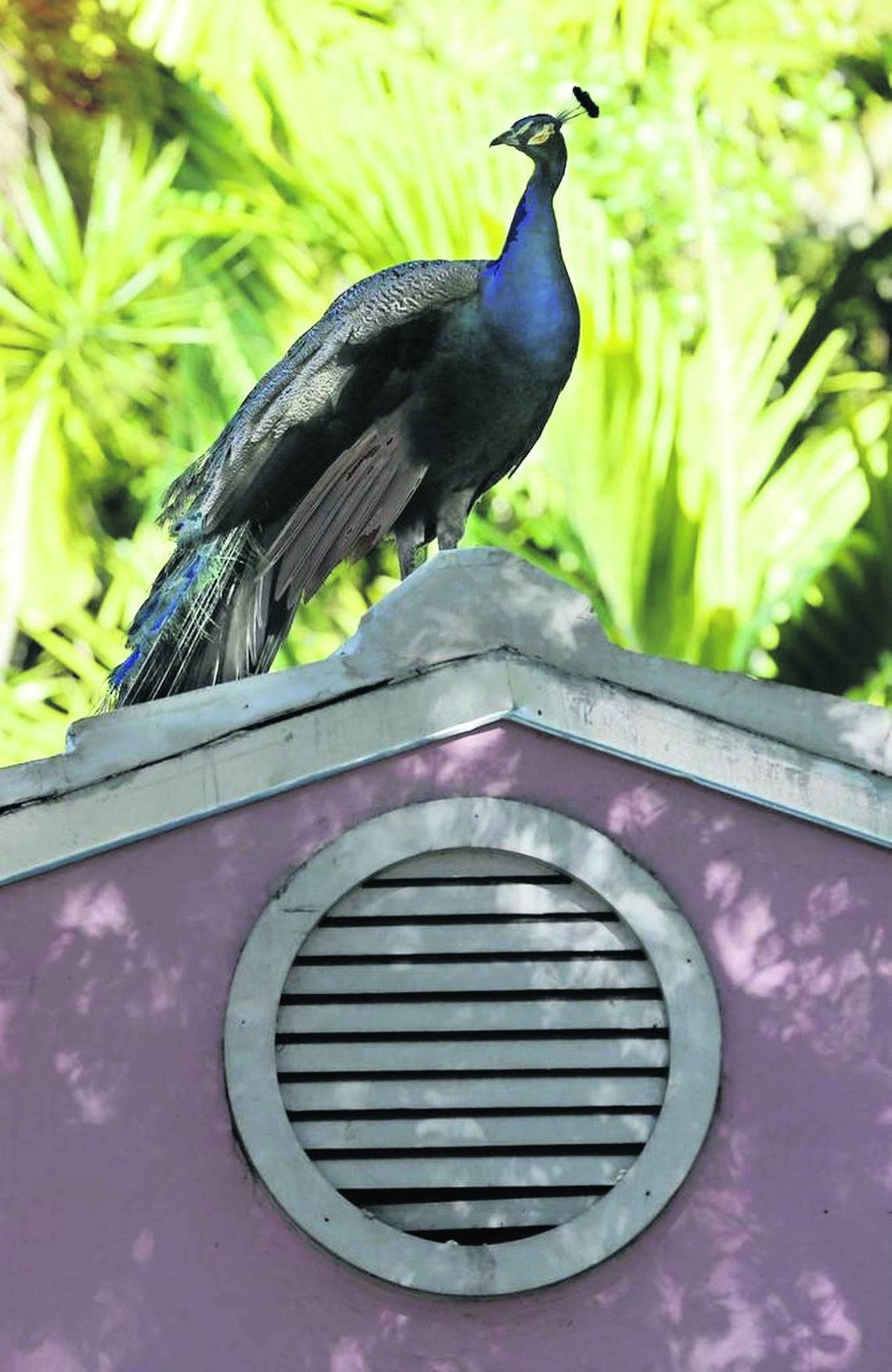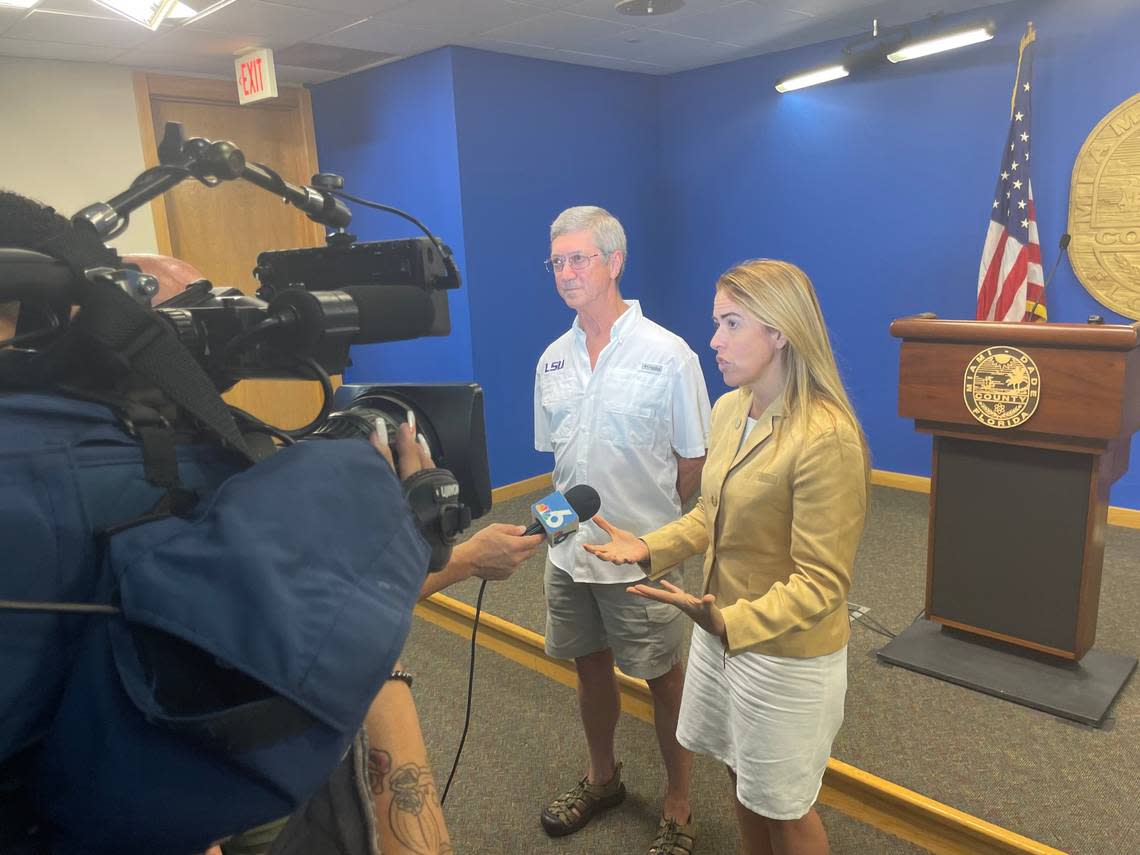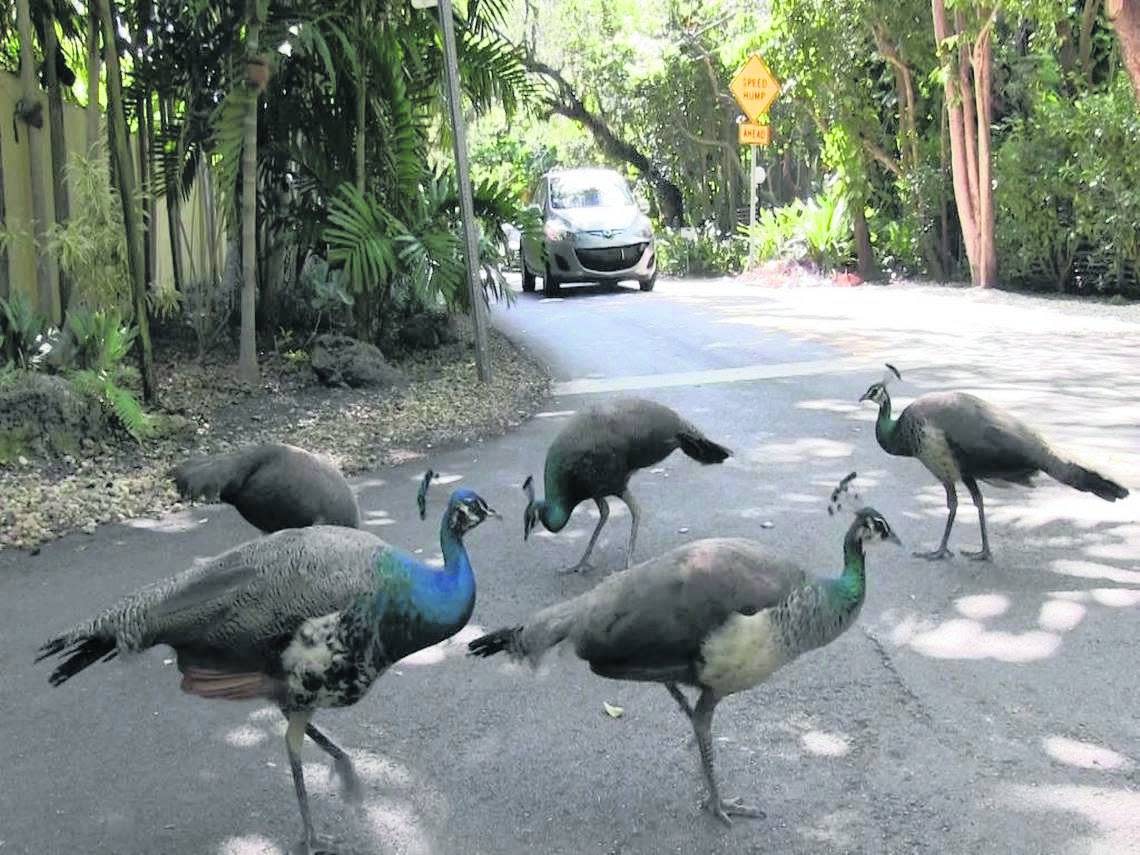Pinecrest has a peacock problem. This vet hopes to fix it, one vasectomy at a time
Shielded by county law for decades, peacocks in Pinecrest are no longer off limits to trappers, and Don Harris is eager to get his hands on the birds.
Pinecrest lined up Harris to perform hundreds of rapid peafowl vasectomies after the village secured an exemption this week from Miami-Dade County’s strict rules against trapping the large birds.
READ MORE: Will cities declare peacocks fowl non grata as Miami-Dade loosens bird protections?
Trappers hired by the village will respond to resident requests for peafowl sterilizations, then ship the birds to a Harris facility for vasectomies under sedation before returning the fowl to the neighborhoods where they were taken. The hope is to slow the growth of a population that’s both beloved by some for its plumage and detested by many for its daily habits.
“The upside of peacocks is they’re beautiful. Everybody knows that,” Harris said Tuesday after the County Commission vote granting Pinecrest a waiver from Miami-Dade’s 2001 peafowl ordinance. “The downside is they can do damage to property. They will see their reflection in a car and attack the car...They roost on fences, on the tops of cars and on roofs. They do damage there. And they’re vocal. Very vocal.”

Pinecrest budgeted $7,500 a month for what’s being described as a pilot program that could expand to other municipalities fielding resident gripes about peacock noise, pecking damage and bird waste on sidewalks, cars and roofs.
“We get complaints about peacocks every week. It’s non-stop,” said Raquel Regalado, the Miami-Dade commissioner representing Pinecrest and other areas around Miami with large peacock populations. “During mating season, it’s our number one issue.”
Pinecrest is a suburban village of 18,000 people where, according to county tax data, the average house is worth $1 million. Joseph Corradino, the village’s mayor, said Pinecrest has been searching for a long-term peacock fix the last two decades.
That included a brief effort to relocate flocks to sanctuaries, but it’s been difficult to find places willing to care for more fowl. “The zoos stopped taking them,” he said. “We never got any traction.”
One neighborhood reported a population of 250 free-roaming peacocks, fortified by a resident suspected of feeding them in her backyard. Pinecrest banned feeding the birds, but enforcement can be challenging.
Shannon del Prado, a member of the Village Council, headed up the recent effort that landed on hiring Harris. Even with the sterilization campaign, she said peacocks will remain part of the Pinecrest landscape.
“It’s like stray cats,” she said. “We’re not eradicating them. We’re just controlling the numbers.”
Peacocks can be a prickly topic in Miami-Dade, which created unique protections for the birds after a petition drive to save a flock in South Miami-Dade. The county law bans killing peacocks — also known as “peafowl” or “peahens” — as well as capturing them, though there’s an exemption allowing property owners to remove the birds unharmed.

Harris is emphasizing the operations shouldn’t upset the established peacock societal order. With vasectomies, male peacocks can still mate with females and enjoy the benefits of being the dominant bird in the flock and peahens can continue laying eggs, Harris said. But after sterilization, peacocks lack the ability to fertilize an egg into a future chick.
Harris is a specialist in caring for exotic animals, with offices in the Stuart area and in South Miami. He said the peacocks will spend about three days with him in a pen located somewhere in Miami-Dade that he doesn’t want to identify.
“This is an abandoned zoo,” he said. “I’m not going to say anymore.”
Regalado sponsored the legislation approving Pinecrest’s new “peafowl mitigation policy,” the second one approved in Miami-Dade after Coral Gables filed a similar waiver request in October. She’s also using her District 7 budget to purchase the vasectomy equipment needed for Harris to sterilize the birds, and said she’d be offering the same assistance to other cities she represents interested in their own peafowl operations.
“The numbers have grown so much,” she said. “This is an important first step.”

